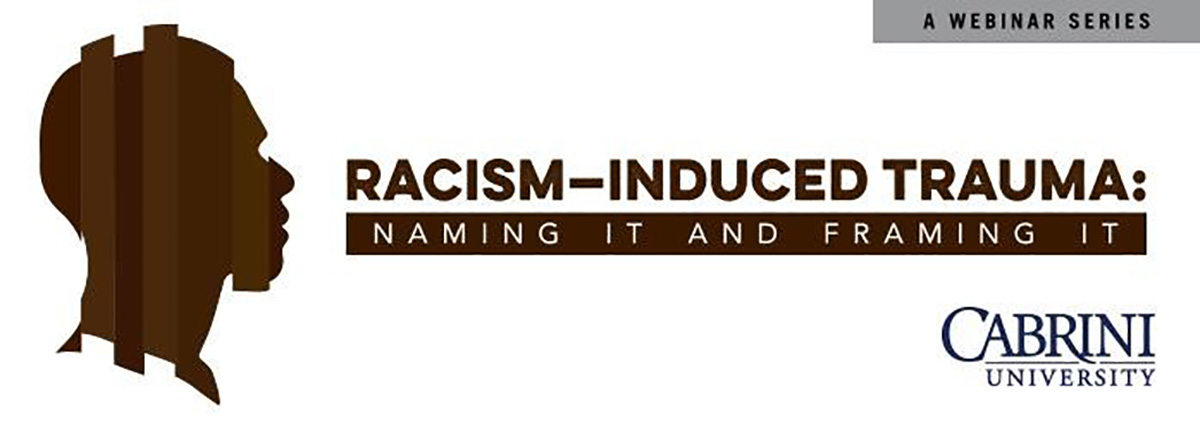On June 11, The Barbara and John Jordan Center for Children of Trauma and Domestic Violence Education at Cabrini hosted the first installment in its three-part webinar series Racism-Induced Trauma: Naming It and Framing It. Amid one of the largest and most prolonged eras of civil protest in American history, the webinar provided a forum for Cabrini students, faculty, and staff to share their personal experiences with racism and its consequences, both collective and individual. Jordan Center Faculty Director and Associate Professor of Education Colleen Lelli, EdD, and Assistant Professor of History and Political Science, Joseph Fitzgerald, PhD, moderated the online panel.
“When people hear the word ‘trauma,’ they think that someone experienced one event and was affected by it,” Lelli said. “One event can cause extreme trauma and PTSD, but it can be retriggered after the fact. Trauma can result from racial harassment, racial violence, and institutional racism.”
The webinar series features eight diverse voices from within the Cabrini community as moderators: Renin Broadnax (’20), Bushra Islam (’22), Alexis Johnson (’19), Professor and Chair of History and Political Science Darryl Mace, PhD, Adjunct Professor David Murata, Jemmy Medina Raya (’21), Julia Smith (’21), and Associate Professor and Chair of Criminology Vivian Smith, PhD.
During the first event, each shared how they have been affected by the news and footage of George Floyd’s killing by the Minneapolis Police Department, as well as the deaths of Ahmaud Arbery and Breonna Taylor, among other unarmed Black Americans killed in police custody.
“As a faculty member I am committed to acknowledging the pain our students have suffered due to racism,” Vivian Smith said. “I confess that my participation may also be self-serving as I also look forward to acknowledging my own pain. Lastly, I hope to guide courageous conversations that could help us recognize our power and put forth future calls-to-action to dismantle systems of oppression.”
Mace recalled a Bob Marley lyric from the song "Slave Driver" that he says had a profound impact on his understanding of what it means to be an African American. “Bob Marley, who never had to experience the devastating evils of enslavement,” he said, “still cringed at the sound of a whip because the legacy of that brutal and dehumanizing institution continues to traumatize Black people across generations.”
Ev'rytime I hear the crack of a whip,
My blood runs cold.
I remember on the slave ship,
How they brutalize the very souls.
Racism-Induced Trauma: Naming It and Framing It continues for students, faculty and staff over the next two weeks with the second webinar taking place Thursday, June 18, featuring four affinity-based groups: African American/Black American, Asian American, Latinx, and White/European American. The final installment will convene Thursday, June 25.
